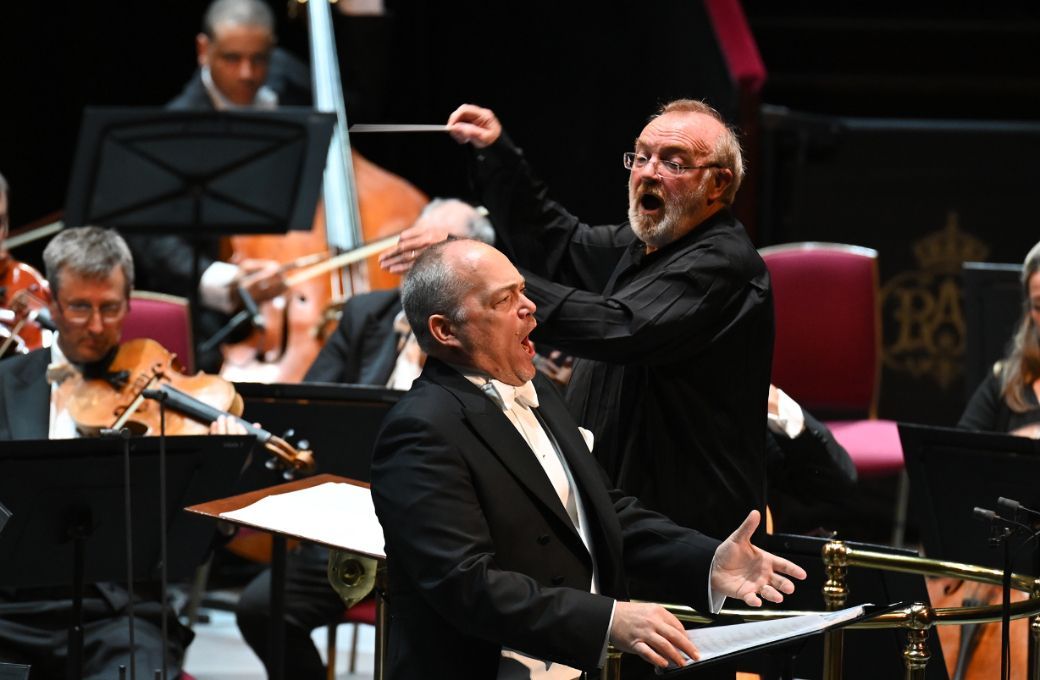‘Titans of British Music’ was the strapline for this London-themed Prom which included seldom performed works by Holst and the Dublin-born Stanford, both composers celebrated this year by significant anniversaries. While celebrations often bring unfamiliar works into focus, it was the music of Elgar and Vaughan Williams that stood out here in compelling performances by the BBC Symphony Orchestra under Martyn Brabbins.
Once a Proms regular under Sir Malcolm Sargent during the 1950s, Elgar’s Cockaigne formed an exuberant opener. Its turn of the century snapshot of England’s capital was variously tender, pugnacious and raffish. Further grandeur arrived with the inclusion of the ad lib organ part and what a difference it made to the nobility of the whole.
Holst’s Hammersmith made a rare but welcome appearance, especially for this fully orchestrated version, only once previously heard at the Proms in the 1970s. It was originally conceived as a BBC Commission for the Wireless Military Band, its title referencing the composer’s familiarity with the area near to his Thameside home at Barnes. The work puts into music his 40-year affection for W6, with the river a brooding presence in its dark outer sections and the bustle of humanity depicted in its central Scherzo. While the Prelude unfolded with urban correspondences to Egdon Heath, its other-worldly outer sections embraced some wonderful roistering, including one atmospheric passage for solo strings reminiscent of Elizabethan polyphony. Changing moods were admirably outlined, its close as crepuscular as the beginning.
Christopher Maltman joined the orchestra for three of Stanford’s Songs of Faith, settings made in 1906 from Walt Whitman’s Leaves of Grass anthology. The soloist’s oak-aged baritone seemed ideally suited to songs that offered different perspectives on faith, death and eternity. Plenty of gravitas permeated To the Soul, while the dark-hued drama of Tears, was also fully realised. No less communicative was the exhilaration of Joy, shipmate joy!, its promise of the afterlife encapsulated in its soaring phrases. The Stanford selection concluded with The Fairy Lough – the second of six settings of poems from Moira O’Neill’s Songs of the Glens of Antrim published by Stanford as An Irish Idyll in Six Miniatures in 1901. All very pleasant and representative of its time, Maltman brought considerable warmth to his rendition.

There followed the Second Symphony by Vaughan Williams, who once contemplated heading his new score “A Symphony by a Londoner”. It’s a work originally completed in 1913 and packed with ideas as colourful and evocative as any in the composer’s output. But what fascinated here was this rare outing of the 1920 version, familiar to those acquainted with the Hyperion recording with Brabbins and the BBCSO, which contains some rarely heard additions in the second movement and the finale. With conductor and orchestra in close accord, there was a marvellous solemnity and spaciousness to the opening Lento, its atmosphere finely drawn, dawn mists giving way to the “street-life” hubbub of the main Allegro where grandeur, rumbunctiousness and wistfulness made a memorable presence.
Stillness haunted the neighbouring Lento, its twilight mood much enhanced by cor anglais, viola and horn solos, each player taking us to a special place. On to a characterful Scherzo – its Cockney high spirits variously impish and resolute, its final bars magical. The finale was a slow processional, here like a funeral cortege, bringing not just a reminder of the composer’s grimy and impoverished London, but a sense of post war world weariness, a lingering melancholy that brought an awed silence at its close.


